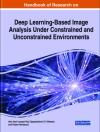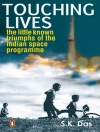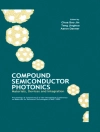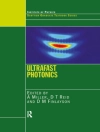This book presents parts of the i M3F 2023 proceedings from the mechatronics as well as the intelligent manufacturing tracks. It highlights recent trends and key challenges in mechatronics as well as the advent of intelligent manufacturing engineering and technology that are non-trivial in embracing Industry 4.0 as well as addressing the UN Sustainable Development Goals. The book deliberates on conventional as well as advanced solutions that are utilized in the variety of mechatronics and intelligent manufacturing-based applications. The readers are envisaged to gain an insightful view on the current trends, issues, mitigating factors as well as solutions from this book. It provides a platform that allows academics as well as other relevant stakeholders to share, discuss, and deliberate their latest research findings in the field of manufacturing, mechatronics, and materials, respectively.
विषयसूची
लेखक के बारे में
Wan Hasbullah Bin Mohd Isa graduated with a B.Eng. in Mechatronics (Precision Engineering) from the Hochschule Furtwangen University, Germany. He then completed his M.Sc. in Mechatronics at Fachhochschule Aachen, Germany. Currently, he is pursuing his Ph.D. at Universiti Malaysia Pahang Al-Sultan Abdullah (UMPSA) in the field of deep learning architectures in sports application. Since 2012, he is a lecturer at Faculty of Manufacturing and Mechatronic Engineering Technology of UMPSA, focusing her research on machine learning, miniaturized energy harvesting systems, artificial intelligence, and smart material-based actuation/sensing applications. Dr. Ismail Mohd Khairuddin is a senior lecturer at Universiti Malaysia Pahang Al-Sultan Abdullah. He received his Bachelor’s Degree in Mechatronics Engineering from Universiti Teknikal Malaysia Melaka (UTe M) and was awarded with a Master’s Degree in Mechatronics and Automatic Control from Universiti Teknologi Malaysia. He then obtained his Ph.D. in Biomechatronics Engineering at the International Islamic University Malaysia. His research interests include rehabilitation robotics, mechanical and mechatronics design, mechanisms, control and automation, bio-signal processing as well as machine learning. Dr. Mohd Azraai Mohd Razman graduated from the University of Sheffield, UK, followed by an M.Eng. from Universiti Malaysia Pahang Al-Sultan Abdullah (UMPSA), both in Mechatronics Engineering. He obtained his Ph.D. from UMPSA in the application of machine learning in aquaculture. His research interests include optimization techniques, control systems, signal processing, instrumentation in aquaculture, sports engineering as well as machine learning. He is currently serving as a guest editor for SN Applied Sciences in a number of topical collections. Dr. Sarah ‘Atifah Saruchi received her Bachelor of Engineering, majoring in Mechatronics from Nagoya University, Japan. She completed her Master and obtained her Ph.D. in the field of autonomous vehicle control system and artificial intelligence from Universiti Teknologi Malaysia, Kuala Lumpur. Currently, she is serving as a senior lecturer at Universiti Malaysia Pahang Al-Sultan Abdullah. Her research interests include autonomous vehicles, artificial intelligence, control systems, Internet of things, and robotics. Dr. Sze-Hong Teh is an assistant professor in the School of Intelligent Manufacturing Ecosystem at the Xi’an Jiaotong-Liverpool University. He received his M.Eng. in Mechanical Engineering and Ph.D. in Mechanical Engineering from the University of Nottingham Malaysia Campus. His main research interests involve nonlinear dynamics and control of nonlinear systems. He is an associate member of the Institution of Mechanical Engineers and a fellow of the Higher Education Academy. Dr. Pengcheng Liu is an assistant professor in the Department of Computer Science at the University of York, UK. Beforejoining York, he has held several academic positions including a senior lecturer (associate professor) at Cardiff School of Technologies, Cardiff Metropolitan University, UK, a joint research fellowship at Lincoln Centre for Autonomous Systems (LCAS) and Lincoln Institute of Agri-Food Technology (LIAT), University of Lincoln, UK, and a research assistant and a teaching assistant at Bournemouth University, UK. He also held academic positions as a visiting fellow at the Institute of Automation, Chinese Academy of Sciences, China, and Shanghai Jiao Tong University, China. Pengcheng is an associate editor of IEEE Access and Peer J Computer Science, and he is a member of IEEE, IEEE Robotics and Automation Society (RAS), IEEE Control Systems Society (CSS), and IFAC.












